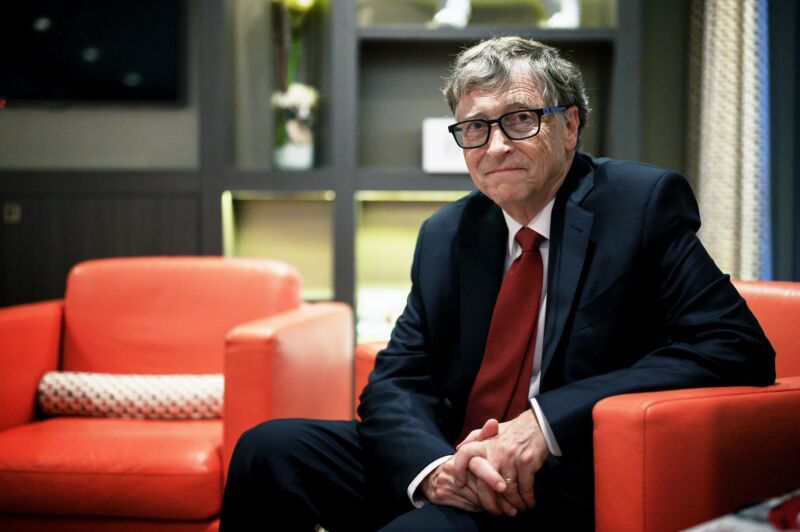
Enlarge / Despite trillions of dollars of economic damage, Bill Gates is optimistic that a strong pipeline of therapies and vaccines will carry the US through the pandemic. (credit: Jeff Pachoud | Getty Images)
For 20 years Bill Gates has been easing out of the roles that made him rich and famous—CEO, chief software architect, and chair of Microsoft—and devoting his brain power and passion to the Bill and Melinda Gates Foundation, abandoning earnings calls and antitrust hearings for the metrics of disease eradication and carbon reduction. This year, after he left the Microsoft board, one would have thought he would have relished shedding the spotlight directed at the four CEOs of big tech companies called before Congress.
But as with many of us, 2020 had different plans for Gates. An early Cassandra who warnedof our lack of preparedness for a global pandemic, he became one of the most credible figures as his foundation made huge investments in vaccines, treatments, and testing. He also became a target of the plague of misinformation afoot in the land, as logorrheic critics accused him of planning to inject microchips in vaccine recipients. (Fact check: false. In case you were wondering.)
My first interview with Gates was in 1983, and I’ve long lost count of how many times I’ve spoken to him since. He’s yelled at me (more in the earlier years) and made me laugh (more in the latter years). But I’ve never looked forward to speaking to him more than in our year of Covid. We connected on Wednesday, remotely of course. In discussing our country’s failed responses, his issues with his friend Mark Zuckerberg’s social networks, and the innovations that might help us out of this mess, Gates did not disappoint. The interview has been edited for length and clarity.
Read 51 remaining paragraphs | Comments
from Ars Technica https://ift.tt/33GDzbM



No comments:
Post a Comment